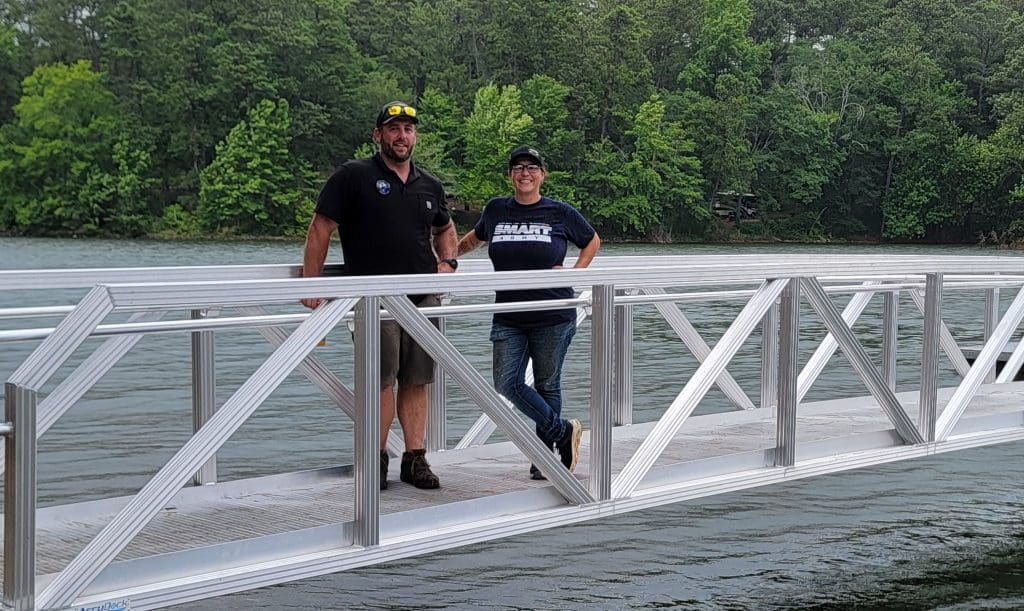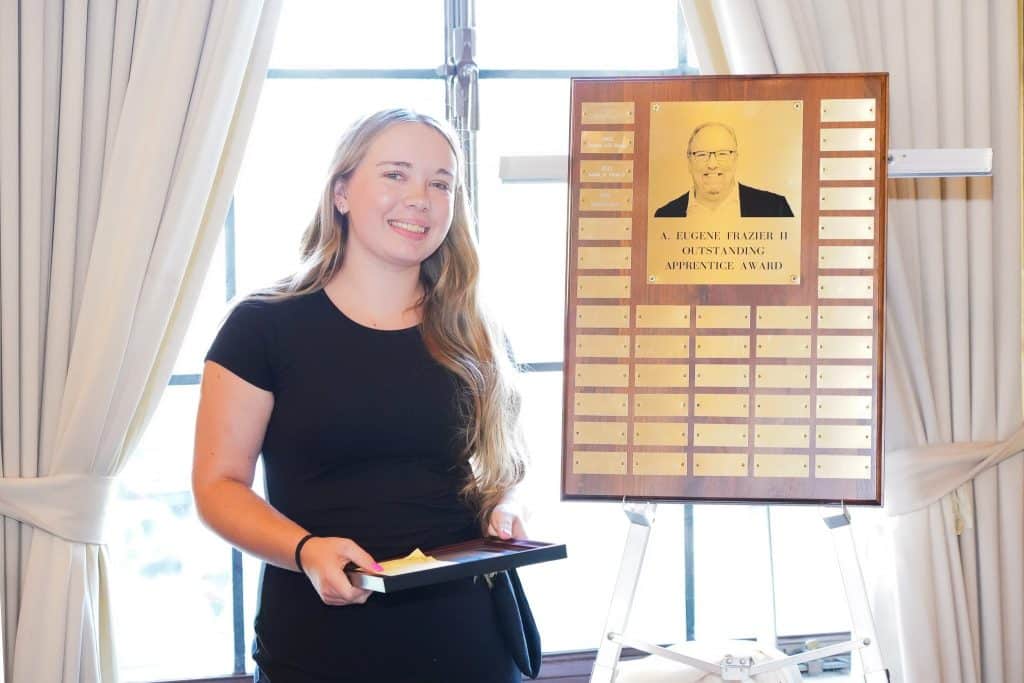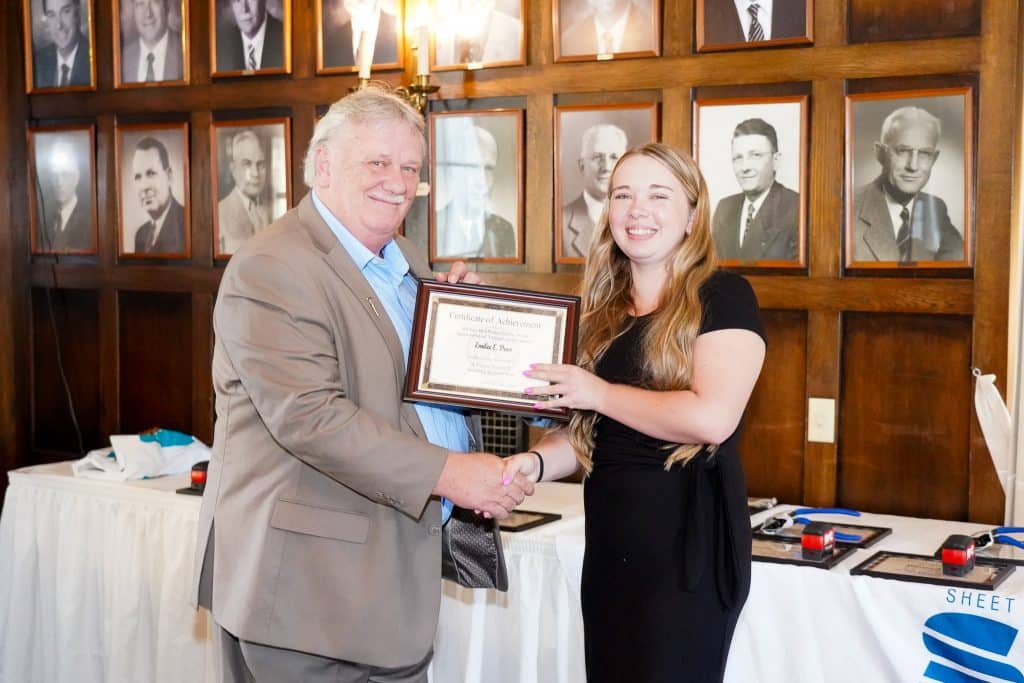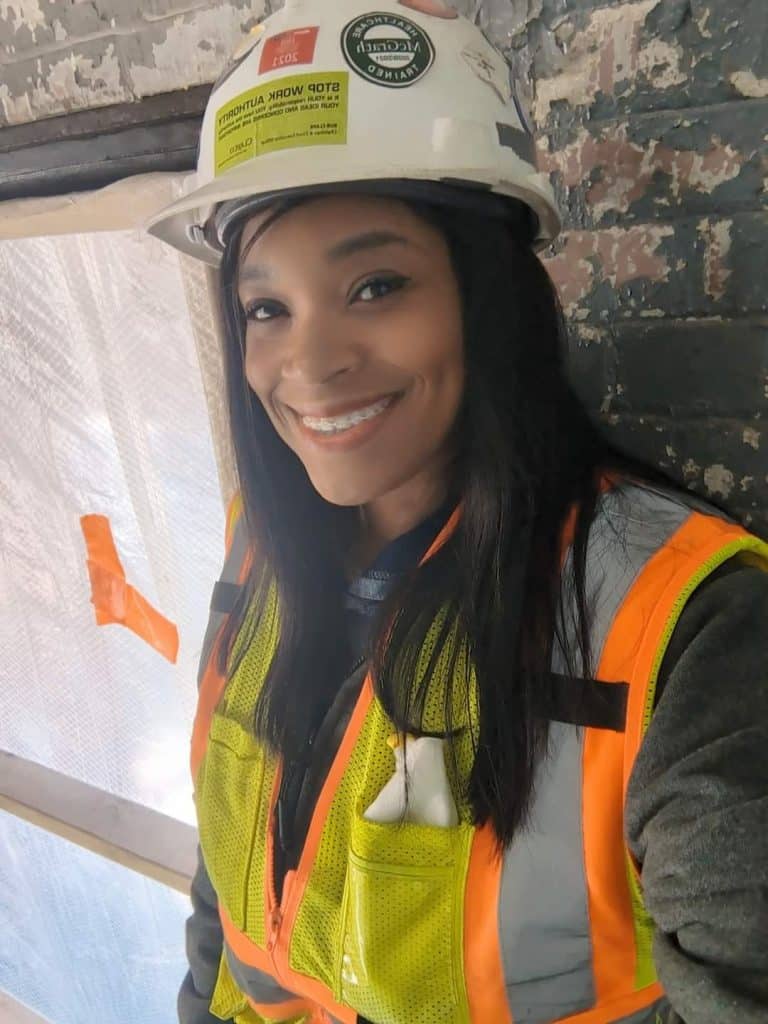
Each year during National Apprenticeship Week, SMART celebrates the life-changing power of a union apprenticeship — from stellar pay and benefits to lifelong solidarity and fulfilling career paths.
Dee Lee, a second-year Local 85 apprentice out of Atlanta, Ga., has already plunged head-first into life as a union sheet metal worker — from working in the field at Warner Bros. Studios to organizing multi-trade charity projects. Learn more in her SMART Women’s Committee National Apprenticeship Week spotlight:
Are you active in trade-related activities?
I am very active in trade-related activities. I have gone to career fairs and organizing events with my local organizer, I have volunteered, and I even hosted my own SMART Army event, the Unions Unite project. Unions Unite is the new, annual, all-local volunteer event I organized in Atlanta involving multiple union trades, the Georgia Building Trades Commission, the U.S. Army Corps of Engineers, and the Union Sportsmen’s Alliance. We all came together to install a new courtesy dock at the Blockhouse Boat Ramp in Cartersville, Ga.
What’s one tool you can’t live without?
The one tool I can’t live without is my notebook and pen! It helps me stay organized and keep track of the things I need to keep track of.
What do you find frustrating about your job/trade?
I’d say the most frustrating part is coworkers that are stuck in their ways, or stuck in “the old ways.” It makes it hard to be a woman sometimes. It feels a lot like I have to work twice as hard to earn half as much respect.
What’s the coolest job you’ve worked on?
The coolest job I was on was my first jobsite in the field, Warner Bros Studios. It was really cool to see the studios and the campus, and find out how much I already knew before I got out there.


